article
-
All the news the media missed in 2025 fixthenews.com (via Miraz Jordan.)
-
“The right kind of optimism is disciplined. It begins with the premise that action changes outcomes, then organizes institutions, incentives, and narratives to make that premise true.” mongabay.com.
-
The Sydney I know isn’t like what they’re showing on the news writingslowly.com.
-
It’s naive to trust Reddit’s figures, but that’s what they say, and you can’t do your own analytics. Well, I can’t anyway. ↩︎
-
I’m borrowing a taxonomy of social media that includes big rooms, small rooms and many rooms. ↩︎
- Fitts & Posner’s Three-Stage Model of learning describes a clear progression beginning with the Cognitive stage, where learners consciously think through each movement whilst developing basic understanding. This advances to the Associative stage, characterised by refinement and error reduction as movements become more fluid. Finally, learners reach the Autonomous stage, where skills become largely unconscious.
- Adams’s Two-Stage Model offers a simpler linear progression from the Verbal-Motor stage to the Motor stage, where performance becomes increasingly automatic.
- Perhaps most influential is Scaffolding and Fading, an approach rooted in Lev Vygotsky’s theory of the ‘zone of proximal development’. This approach deliberately simplifies complex skills into manageable components, and the teacher provides extensive support initially before gradually removing assistance.
- Adams, J. A. (1971). A closed-loop theory of motor learning. Journal of Motor Behavior, 3(2), 111-150.
- Fitts, P. M., & Posner, M. I. (1967). Human performance. Brooks/Cole.
- Hammerness, K., Darling-Hammond, L., & Bransford, J. (2005). How teachers learn and develop. In L. Darling-Hammond & J. Bransford (Eds.), Preparing teachers for a changing world: What teachers should learn and be able to do (pp. 358-389). Jossey-Bass.
- Hoffman, S. (2009). Introduction to kinesiology: Studying physical activity (3rd ed.). Human Kinetics.
- Kato, T. (2012). The traditional Japanese learning model: Shu-Ha-Ri. In M. Nakamura & T. Yamamoto (Eds.), Cultural approaches to skill acquisition (pp. 67-89). Tokyo Academic Press.
- Magill, R. A., & Anderson, D. I. (2017). Motor learning and control: Concepts and applications (11th ed.). McGraw-Hill Education.
- Schmidt, R. A., & Lee, T. D. (2019). Motor learning and performance: From principles to application (6th ed.). Human Kinetics.
- Vygotsky, L. S. (1978). Mind in society: The development of higher psychological processes. Harvard University Press.
- Wood, D., Bruner, J. S., & Ross, G. (1976). The role of tutoring in problem solving. Journal of Child Psychology and Psychiatry, 17 (2), 89-100.
Fear of AI is nothing new: Promethean shame in a time of technological change
Günther Anders (1902-1992) is a 20th century philosopher for our time, which is fitting since he saw himself as uncomfortably ‘too early’ for his own.
Almost unheard of in the English-speaking world, he was at the centre of German philosophy before the rise of Hitler and the catastrophe of the Second World War. Student of Husserl, Heidegger, and later Tillich, he was a second cousin of Walter Benjamin, a friend of Berthold Brecht and was Hannah Arendt’s first husband. Given this pedigree I found it surprising he was (to me) so obscure. In post-war Germany he was a big deal. Now he’s back in fashion, thanks to the eery prescience of his masterwork, The Obsolescence of Man (vol. 1, 1956, vol.2, 1980) and its clear relevance to the current AI revolution.
Anders coined the phrase ‘Promethean shame’, which is a kind of embarrassment at being human when faced with the apparently superior capabilities of our technology.
💬 “Our aim is always to create something that could dispense with our assistance and function perfectly without us. In other words, nothing less than appliances through whose functioning we make ourselves superfluous, eliminate ourselves, liquidate ourselves. It is of no consequence that we only ever approximately achieve this goal. What counts is this trend and its maxim, which is: “without us!".” — Günther Anders, ‘The Term’.
In February 2026 Greg Knauss wrote a much-noticed blog post, entitled, Lose myself, about his feelings of obsolescence as a computer software engineer.
“💬 What I am talking about is being replaced, about becoming expendable, about machines gaining the ability to adequately perform a very specific function that was previously the exclusive domain of skull meat.”
“What I’m talking about is that nothing I do matters. That nothing I can do matters.”
With mass lay-offs in the tech industry, many people might have been feeling this sense of existential redundancy, but Manton Reece, also a long-time software creator, took a different view, perhaps the ‘glass half full’ approach, which may indicate that there’s a certain degree of subjectivity to Promethean shame. In Not faster, now possible he wrote:
💬 “If all we see is the work we currently do being replaced and done better by robots, we’ll miss everything that will make software companies successful in the future — a thousand ideas that could improve people’s lives in small ways.”
Whether you personally feel obsolete or not, and whether or not AI is coming after your own job, Anders’ thought is also relevant in terms of the apparent failure of the popular imagination in relation to AI’s future impacts.
Anders’ wrote of ‘inverted utopians’. Whereas the original utopians were unable to create what they could imagine, modern humans are unable to imagine what they have created.
💬 ‘We Are Inverted Utopians’: The basic dilemma of our age is that ‘we are smaller than ourselves’, incapable of mentally realizing the realities which we ourselves have produced. Therefore we might call ourselves ‘inverted Utopians’: while ordinary Utopians are unable to actually produce what they are able to visualize, we are unable to visualize what we are actually producing. (Günther Anders, 1962: 496)
This might sound strange until we consider the starry-eyed pronouncements of contemporary leaders of technological change. They promise their innovations will deliver extraordinary improvements in productivity and wealth but are unable to give any real details. This has been characterised as CEOs aspiring to be Thomas Edison while talking like P.T. Barnum, but an encounter with Anders’ thought suggests this flummery may be more an inherent feature of technological change than a deliberate intention to deceive.
Author and literature professor Alan Jacobs observes that there’s a massive gap in the public discourse about how AI is impacting the economy:
💬 “I keep hearing AI advocates say that the universal deployment of AI will create a “productivity explosion” and “unprecedented wealth creation” and will “end poverty.” All I want to know is: How? How will the money made by the big AI companies end up in the pockets of the poor? I’m not even asking for a plausible scenario — I’d be happy to see any scenario at all, anything more than “THEN A MIRACLE OCCURS.””
Reading this I imagine how the CEO of OpenAI or Anthropic might respond. Perhaps by gaslighting us about how we should just be happy that everyone else is feeling really bullish. But having also read Anders, I feel perhaps these CEOs couldn’t imagine their own technology, even if they sincerely wanted to. Maybe the technology itself precludes such understanding.
Anyway, I’ve written about this before, back in 2023, when I suggested that more than ever, embracing your humanity is the way forward. And, oh look! It still is.
When I consider the crude Trumpian fixation on ‘winners’ and ‘losers’ I can’t help feeling that there’s a certain adolescent American narcissism about the need to avoid being seen to be a ‘loser’.
In the civilised world, this desperation may seem pathological. After all, from cradle to grave, each one of us will definitely experience periods of complete helplessness, where we are utterly dependent on the support of others. But in a society with few or broken social safety nets, it’s quite possible that a fear of ‘losing’ is hardwired into the population by means of a politics which names, targets and materially punishes ‘losers’ of all kinds. So it’s ironic that large language models (LLMs) and other AI technologies, which now seem to make everyone a loser, have been invented in this America and are being touted there as the brightest and best future.
As with all such promises, it’s worth asking ‘brightest and best for whom?’ If the technology’s benefits flow upward, as they tend to, then the losers it creates will be many, and the imagining we need to do, of alternatives, of resistance, of what it means to be human, becomes a necessity rather than a luxury.
And there’s a third sense in which Anders’ thought is relevant today. He argues that humans aren’t just technologically obsolete, in the sense that the tools and systems they invented have outclassed them. They’re also morally obsolete. Anders reached this viewpoint from having lived through the German population’s reception of Hitler, in which many quietly, even willingly, accepted their role as functionaries in a technocratic totalitarian system, and the Holocaust as a system of mass murder, and the atomic bomb as a technology of mass destruction. Having invented unimaginable power it was hard to imagine how to handle it. The atomic bomb was the clearest possible example of this moral deficit: having invented our own extinction it was now impossible, collectively, to turn it down. It was as though the morality required for the Twentieth Century was unavailable to those who lived there.
Günther Anders has been called a philosopher of the apocalypse. But really he’s a philosopher of the day before the apocalypse, reminding his readers that it’s still not too late; that choices can still be made; that in spite of appearances we can still make them.
Reflecting on Anders’ philosophy, Indian educationalist Badruddin (2026) argues that’s what’s needed is “a transformative educational model that prioritizes ethical literacy, existential reflection, and critical engagement with technology… a pedagogy that not only resists passive adaptation to technological systems, but also fosters autonomous, ethically grounded individuals.”
That’s laudable, but what kind of education can foster an ethical approach to the use of AI, beyond simply accepting the default settings and whatever our corporate overlords decide we must now use? I guess we’re going to find out.
And while we’re working on this, it’s important to recognise that AI isn’t suddenly making us obsolete. As Anders reminds us, we already were. But this isn’t a counsel of despair; it’s a recognition of the enduring human condition. My range is me and though that might be tough it’s simply nothing to be ashamed of.
Further reading
Anders, G. (1962) Theses for the Atomic Age. The Massachusetts Review 3(3): 493–505.
Babich, B. (2022). Günther Anders’ Philosophy of Technology: From Phenomenology to Critical Theory. London: Bloomsbury.
Badruddin. (2026). Harnessing Gunther Günther Anders’ Existential Insights for Educational Enrichment. The Clearing House: A Journal of Educational Strategies, Issues and Ideas, 99(1), 1–18. doi.org/10.1080/0…
Borowski, A. (2022). Philosopher of the Apocalypse. Aeon Magazine. https://aeon.co/essays/gunther-anders-a-forgotten-prophet-for-the-21st-century
Müller, C. J. (2016). Prometheanism: technology, digital culture and human obsolescence. (Critical Perspectives on Theory, Culture and Politics). Rowman & Littlefield.
You can hear a discussion on Anders with Nalah Ayad, Babette Babich and Chris Müller on CBC.
—-
I’m the author of Shu Ha Ri: The Japanese Way of Learning, for Artists and Fighters, available now.
And if you found this article interesting you might like to sign up to the Writing Slowly weekly email digest. You’ll receive all the week’s posts in that handy email format you know and love.
Guy Kawasaki says ‘move fast and break things’ is a myth. True! But since he can’t quite escape its toxic allure, I’ll say it for him, loudly and proudly:
Move slow and fix things. [guykawasaki.substack.com]

Shu Ha Ri: The Japanese Way of Learning, for Artists and Fighters is available now.
Beginners and intermediate learners fear ‘making mistakes’; experts seldom do. Not because experts don’t make mistakes: they do. It’s just that experts know what to do next.
Here’s Herbie Hancock telling what he learned from his mentor Miles Davis: Every mistake is an opportunity [openculture.com].
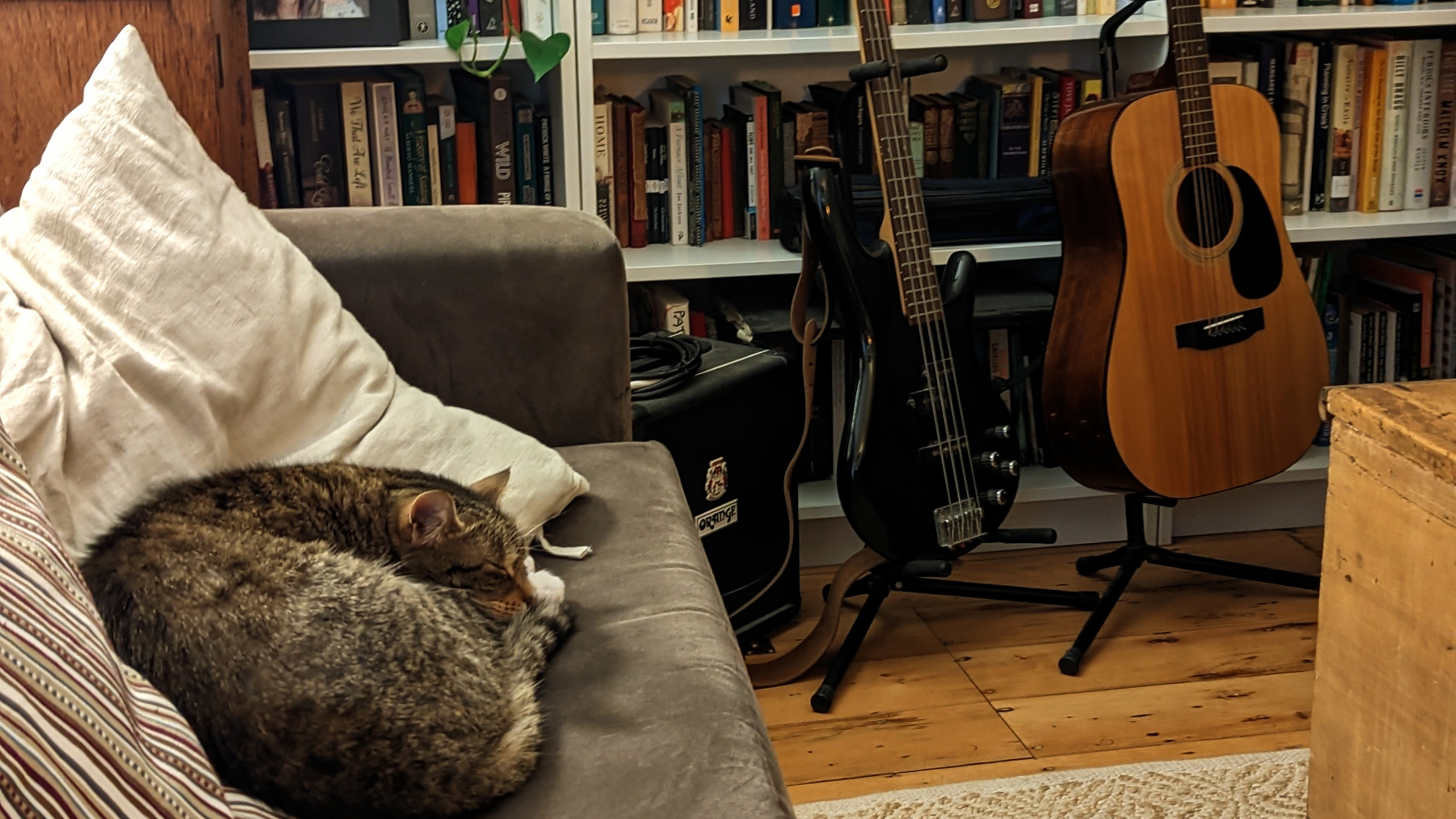
Find the right teacher
There’s a Japanese saying that I included in my book):
If it takes three years, find the right teacher.
But sometimes, you just need to get started. Simon Sarris has a great story about this. He decided to build a barn by trial and error, with little previous barn-building experience. But because he was doing this near the road in front of his house, it attracted the attention of a regular passer-by who just happened to know, in detail, how to build barns.
“Mike would have never stopped by if I was not working conspicuously in my driveway, every day, under a pop-up tent. But I was, and he became interested in my progress, and it happens that he has been timber framing since the 90’s. Had I waited for such a teacher—for he has now taught me a good deal—I would have never found him. But I chose to start, and he was drawn to my adventure. Only by virtue of starting the work was the intersection of our lives possible.” - Start With Creation - by Simon Sarris
The moral? If it takes three years, find the right teacher. But if you start your learning journey with action, the right teacher might just find you.
So now here’s a question: Who was the right teacher for you, and how did you find them, or alternatively how did they find you?
(And yes, I have a story about a teacher who found me, but that’s a story for another time.)

Photo by Kazuhiro Yoshimura on Unsplash
Meanwhile, my book, Shu Ha Ri: The Japanese Way of Learning, for Artists and Fighters, is out now. Please check it out.
Leonard Koren on Life as an Aesthetic Experience
I’ve never been much of a bathing person. Perhaps that’s due to unpleasantly lingering memories of luke warm water in freezing cold bathrooms in the UK when I was a child. The bath was fine enough, but getting out would be a real test. Even bathing, as an adult, in natural hot springs on Orcas Island in the US Pacific Northwest didn’t really do it for me. That was a little ‘rustic’, and not in a good way.
True, swimming here in Sydney where I live is fabulous, especially in the Summer, when the cool refreshment of the ocean waves is totally restorative. But bathing? Not so much. Until a few months ago, that is, when I visited Japan.
I hadn’t really understood the national Japanese obsession with bathing, but once I realised there are natural hot water sources all over the place in this volcanic archipelago, and how culturally central they are, and how refined the Japanese have made the whole bathing experience, I was completely hooked. In fact, returning to Australia, it feels strangely hard to live without it. Happily, a new spa and sauna has just opened up in our little neighbourhood, where my partner is already enjoying her season ticket. Come the Autumn, or even sooner, I’ll surely be joining her.
Which brings me to Leonard Koren, the august founder in the 1970s of ‘Gourmet Bathing’ magazine. He tells that story in a podcast interview. What particularly drew me to the interview though, was his account of how he came to write what he’s best known for — his cult book Wabi-Sabi for Artists, Designers, Poets and Philosophers. This book, published in 1994, has pretty much inspired not one but two cottage industries: one that centres on the concept of wabi-sabi, which now counts literally dozens of books exploring every possible angle of the term; and a second cottage industry that revolves around the exploration of Japanese concepts other than wabi-sabi, of which there are also now dozens. Who among us has not now heard of ikigai (finding your purpose), kaizen (continuous improvement), mono no aware (beauty in impermanance), shoshin (beginner’s mind) and so on and so forth?
Time Sensitive Podcast S11 E128 - 2 April 2025.Leonard Koren on Life as an Aesthetic Experience
I learned a few things from this podcast.
First, I learned that Leonard Koren had always intended to self-publish his book.
“When I made the first book," he said, “I thought it would be extremely niche… I realized that I would have to publish it myself.”
Second, I was happy to hear him fully owning the little secret of Wabi-Sabi, that there’s no such thing.
“Let me just be very clear: In Japanese there is no term wabi-sabi, OK? There’s an old word, ‘wabi’ and an old word ‘sabi’. If you look in the Japanese dictionary you won’t find wabi-sabi, period.”
Third, I was very taken with Koren’s description of his creative life:
”My life is essentially an aesthetic experience. Everything I know, everything I take in, every idea I have, comes to me through my senses. And then it’s processed.”
Well, Koren’s book is, quite clearly, the direct inspiration for my own, Shu Ha Ri: The Japanese Way of Learning, for Artists and Fighters.
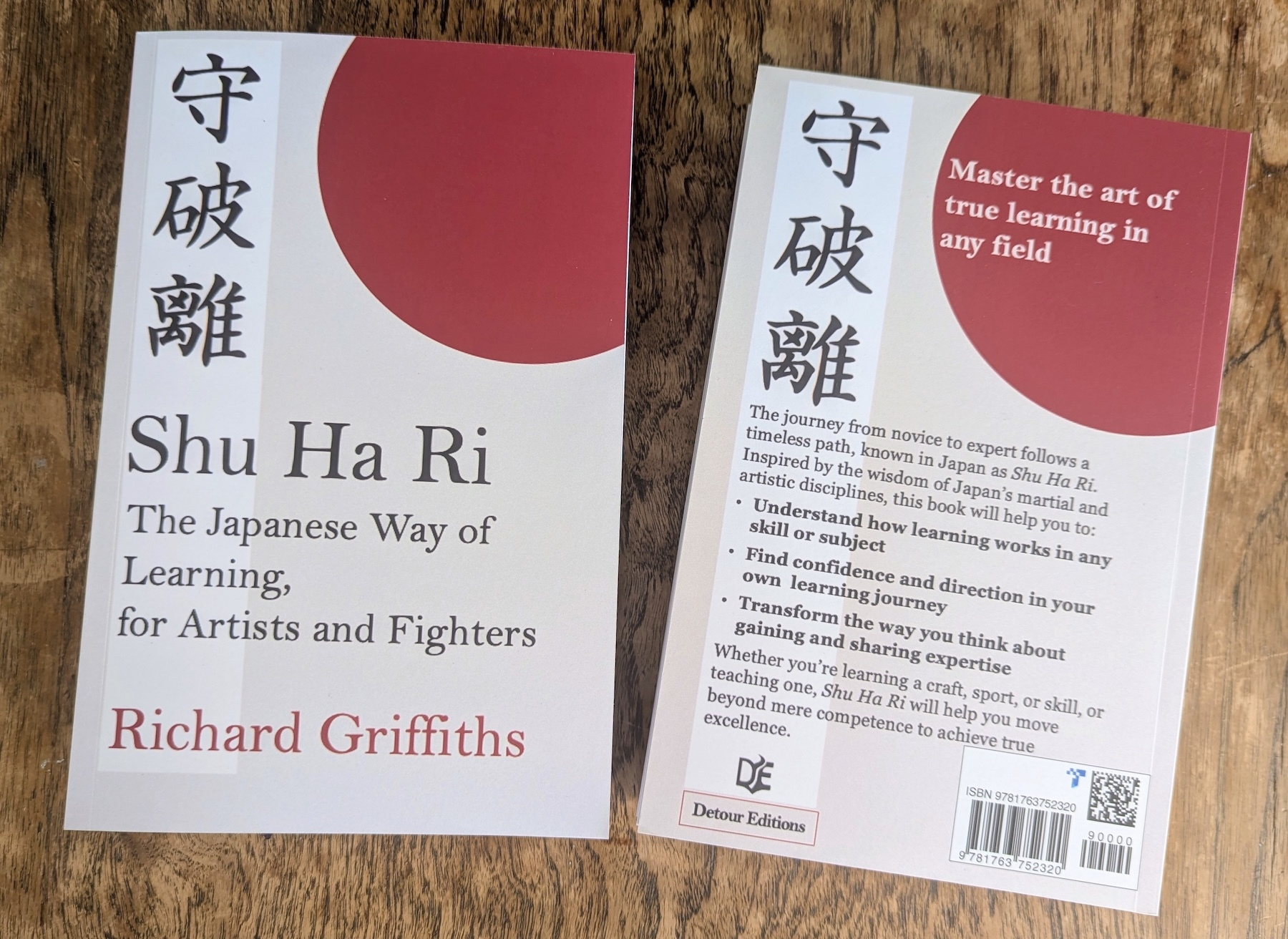
They’re both short, just 100 pages.
They’re both direct, covering one concept and one concept only.
They’re both Artist’s books, including photography (mine has 20 photographs of Japanese gardens, which I took myself).
They’re both originally self-published, to enable a singular, perhaps eccentric vision to find full expression.
They’re both the first book on a Japanese concept that no one in Japan, or anywhere else, has written yet, at least not a long-form treatment.
They’re both at the leading edge of an emerging trend.
Wait! What? What emerging trend is this? Well, I waited 15 years for someone better qualified than me to write about the concept of Shu Ha Ri. No one did. At least, no one else wrote a clear, well-referenced, accessible introduction. Eventually I relented, wrote the book I wished already existed, and put it out there for readers to make their own judgement. But what do you know? Very shortly after I published my own introduction to the concept, another appeared, written by the partnership of Hector Garcia and Nobuo Suzuki. It’s in Spanish only for now, but the English version is published by Tuttle in August 2026, so perhaps soon there’ll be a Shu Ha Ri cottage industry. You heard it here first.
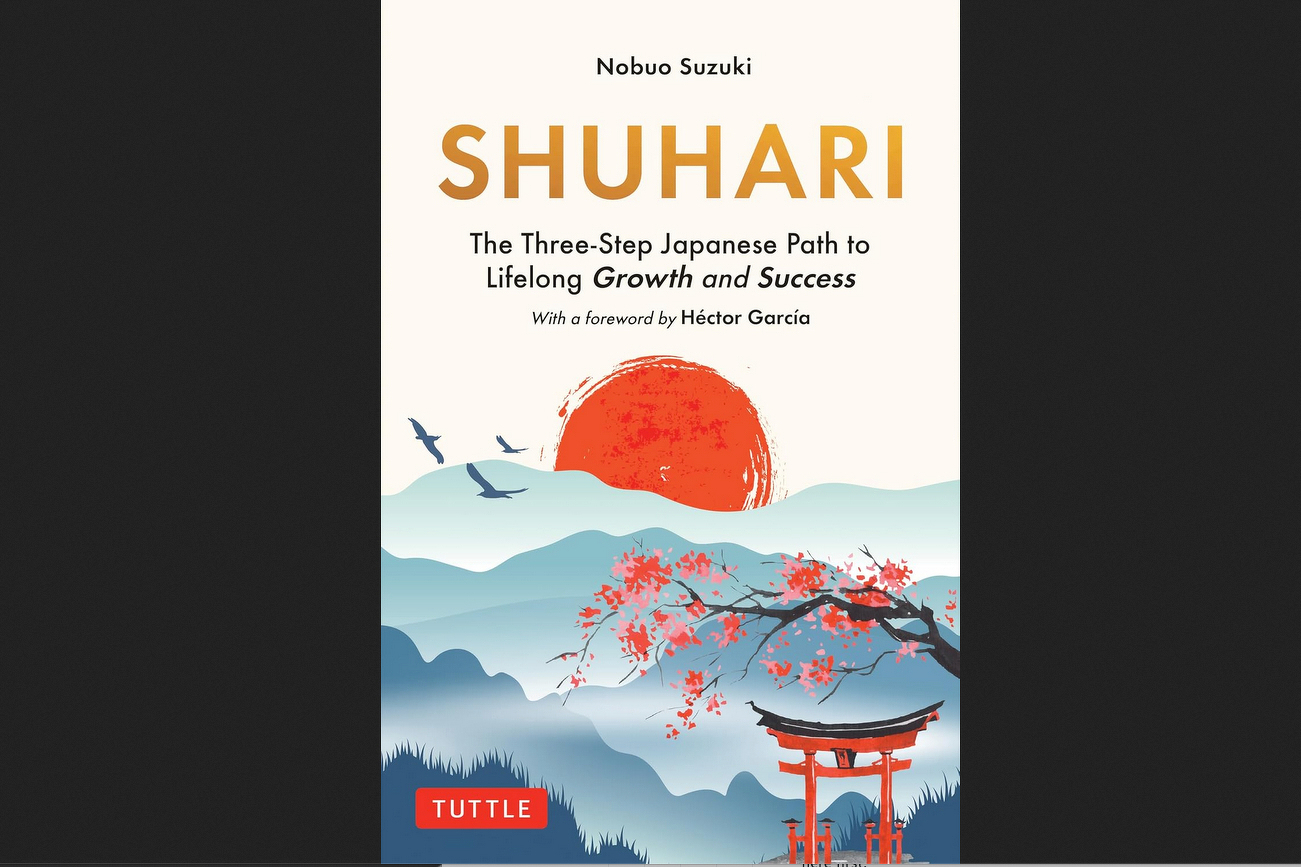
On my recent visit to Japan I walked past a gift shop in the small city of Matsumoto called ‘WabiXSabi’ (yes, in English), and it turns out there’s a whole chain of these stores across Japan. So maybe one day in the future someone will open a Shu Ha Ri shop, selling who-knows-what. Maybe it’ll be a footwear store. You heard that here first too.
But here’s word of warning to anyone thinking of trying this: Best not be selling anything fragile. Translated literally, Shu Ha Ri means ‘hold, break, leave’.
—
As you might have gathered, I’m the author of Shu Ha Ri: The Japanese Way of Learning, for Artists and Fighters, available now.
And if you found this article interesting you might like to sign up to the Writing Slowly weekly email digest. You’ll receive all the week’s posts in that handy email format you know and love.
The Toe of the Year and the Curious Case of John Donne's Missing Commonplace Book
Last month, while my sister was moving house, she discovered a box of papers she’d never seen before. Inside was a collection of documents, decades old, that our parents must have gathered and kept from our childhood. There in a carefully wrapped pile was a sheaf of my sister’s old school reports. And next to them was a set of poems I must have written way back when I was a primary school student.
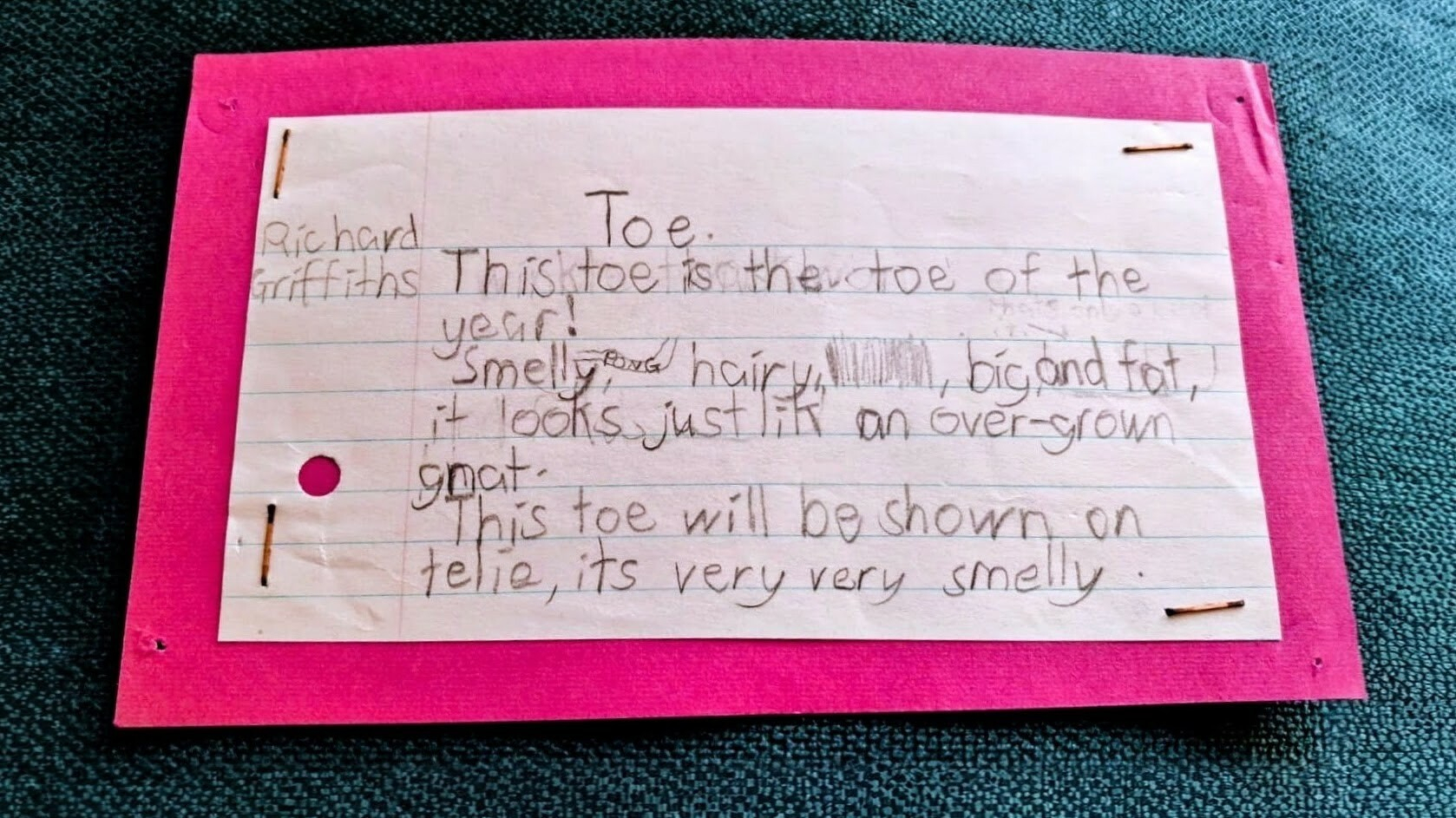
Perhaps you’ve had the experience of venturing into the attic or the basement and finding long-forgotten documents like these. But this chance rediscovery got me thinking about just how much has been lost to time.
Mostly we don’t bother archiving, and even when we do, there are later moments when we decide to spring-clean, rationalise, declutter, or tidy up.
These are all euphemisms for destroying the evidence.
Why your note-making tools don’t quite work the way you want them to - and what to do about it
Every so often I stumble upon a really clear articulation of a concept that makes sense of something I’ve been feeling but didn’t previously have a word for. I knew there was something there but I didn’t have the language to express it.
One of the most interesting articles I’ve come across recently is Artificial memory and orienting infinity by Kei Kreutler.
In this particular case the concept illuminated is the subtle, niggling tension between what I want to use my digital writing tools for and what they actually do. My writing tools, and possibly yours too, nearly do what I want, but not quite. What’s that about? Well, on reading this article, the tension became a whole lot clearer.
The Spiral of Mastery: Why the Greatest Experts Are Serial Beginners
The greatest experts aren’t afraid of starting again
Apparently, my tennis is rusty
Here in Australia the Christmas holidays take place in mid-summer, and my family spent a few days at a house with a tennis court. It was an amazing opportunity, for which we were hardly prepared. I hadn’t played in years. One family member had barely held a racquet before. But we all shared the same problem: our serves were terrible. The ball hit the net, or it veered wildly off court. The serve seemed like some monolithic, unreachable skill you either had or you didn’t.
The view from the court — that was amazing, but the tennis, to say the least, wasn’t flowing.
That was until someone suggested we break it down: grip, swing, ball toss, contact. We stopped trying to play and started drilling. Within a short while, the court was alive with movement and we were laughing instead of frowning with effort. Our natural talent hadn’t changed; it was just that our willingness to break the seemingly impossible into achievable parts made it somehow seem doable. And after a short while, it actually was doable. We were delivering serves that made it over the net, that you could also imagine returning.
This experience was a reminder that expertise is hardly ever about making a single massive effort to achieve something that seems impossible. You don’t get good at tennis all at once. Playing the game well is really a whole portfolio of tiny pieces of expertise you have to master one by one and piece together smoothly before you can reach actual proficiency. And even when you get there, that’s not the end. There’s always something, some element of your play, you can improve. Is mastery a destination to reach and then enjoy forever? No. It’s more like a spiral that requires us to return to the beginning again and again of a long series of micro-skills.

The posts of 2025
I’m much better at writing new stuff than consolidating the old, but it’s time to review what’s been posted here during 2025. Short posts excluded, it’s quite a lot, considering I’m Writing Slowly.
There’s also a list of the posts of 2024 and the posts of 2023 too.
And don’t forget to check out my book, Shu Ha Ri: The Japanese Way of Learning, for Artists and Fighters.
To get the latest posts straight to your in-box, subscribe to the weekly Writing Slowly email newsletter.
Fact checking the good news
I expect 2026 to be a better year than 2025, not through some kind of magic but because millions of people like you and me are working hard to make it so. Since I posted a link to a round-up of the under-reported good news from 2025 someone said ‘some of this was definitely written with ai, so might be worth fact checking 😂’.
I was a bit disappointed, since I wanted the good news to be true, and since I have to admit this could easily make me susceptible to getting taken in by unreliable slop. Well, life’s too short to check all the facts, even if someone is wrong on the Internet (obligatory xkcd link), and that famous cartoon of the guy trying to fix it is actually an accurate drawing of me[^1]. But I thought I should at least do a quick audit. And what did this reveal?
The right kind of optimism in 2026
Happy New Year! May the next 12 months bring you peace and joy and blessing.
Here are a handful of hopeful articles to get your 2026 started on a positive note. I especially recommend the first one which I found deeply inspiring.
The Unity of Pen and Sword: Understanding Bunbu Ichi
My recent book is subtitled “The Japanese Way of Learning, for Artists and Fighters”. But why artists and fighters, and why mention them together?
In medieval Japan, warriors weren’t really expected to choose between intellectual pursuits and martial prowess. Instead they were required to master both. This philosophy is captured in the concept of bunbu ichi (文武一), which literally means “the civil and the martial are one.”
The Sydney I know isn’t like what they’re showing on the news
Tragically my home city has been in the international news for all the wrong reasons and we’re all feeling traumatised and shocked and heartbroken.
What about you?
You only know what you see in the media, like the photo below. So beyond the Harbour and the Opera House, perhaps you don’t know what Sydney is actually like.
I thought I’d show you a snapshot of what it’s really like where I live, on Bidjigal land, the unceded territory of the Eora Nation.

Shu Ha Ri and the philosophy of interior design
The late interior designer Professor Shigeru Uchida discusses the importance of Shu Ha Ri for design:
💬 “The current education system lacks “Shu.” There’s a total absence of the attitude to observe, study, and learn from others. The term “breaking the mold” is common, but without having learned anything from others, one cannot depart from or break away from anything.”
I’m the author of Shu Ha Ri. The Japanese Way of Learning, for Artists and Fighters, available now in paperback and ebook.
Trying to write slowly in 2025
Before I really got going with the Zettelkasten approach to making notes (and with micro.blog) I was publishing only a handful of posts here each year.
But then my productivity exploded.
In 2023 I published 202 posts here, and this post equals that count for 2025, even though the year isn’t done yet.
In 2025 I also edited a collection of essays and published my own book.
So I’m quite happy with the year’s output. And thank you for reading along with me, I really appreciate it.
But don’t worry, in 2026 I’ll still be trying to write slowly.
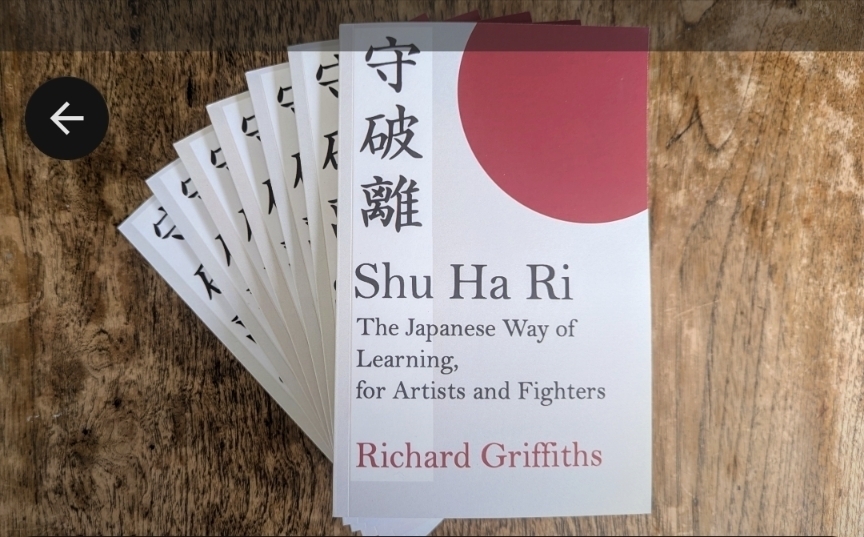
This little book would make a great present for the artist, fighter, learner, teacher, or straight-up Japan-lover in your life. Just saying.
Imitating the greats?
Imitation can be a very effective form of learning, but it’s worth considering who to imitate, and how.
Writers often seek to imitate the greats, but it interesting how far the star of some supposedly timeless writers can fade. Here’s William Zinsser, the well-read author of ‘Writing to learn’, on how he did it.
“Writing is learned by imitation. I learned to write mainly by reading writers who were doing the kind of writing I wanted to do and by trying to figure out how they did it. S. J. Perelman told me that when he was starting out he could have been arrested for imitating Ring Lardner. Woody Allen could have been arrested for imitating S. J. Perelman. And who hasn’t tried to imitate Woody Allen? Students often feel guilty about modeling their writing on someone else’s writing. They think it’s unethical—which is commendable. Or they’re afraid they’ll lose their own identity. The point, however, is that we eventually move beyond our models; we take what we need and then we shed those skins and become who we are supposed to become.”
So who are these people I’ve never heard of, I wondered, who could all have been arrested for imitating one another? I mean, they couldn’t, could they? It’s not actually illegal, is it? Or did Zinsser mean plagiarism?
It turns out that Ring Lardner was an American sports journalist and satirist whose work was greatly admired by many of the major authors who were his contemporaries. In his high school newspaper Ernest Hemingway used the pen name, ‘Ring Lardner Jr’. Lardner became a friend of F. Scott Fitzgerald and he inspired the writing of John O’Hara (another great writer whose name is seldom heard these days). In The Catcher in the Rye, J.D. Salinger gave Lardner a backhanded compliment by having his protagonist, Holden Caulfield, name Lardner as his second favourite author. So for Hemingway at least the juvenile imitation seems to have extended to impersonation.
Clearly I need to read some Ring Lardner.
S.J.Perelman was a humourist, writing especially for the New Yorker. He was admired by T.S. Eliot, Somerset Maugham, Garrison Keillor, Frank Muir, and Woody Allen. Another writer I’ve never heard of, who seems to have been inspirational. But then…
“Who hasn’t tried to imitate Woody Allen?” Is a question I’ll leave hanging in the wind.
Author and academic Adam Roberts has an interesting post about Jonathan Buckley’s novel, One Boat (2025), which appears to use Laurence Durrell’s adjectives as a model for how one of his own characters might over-write their diary. Durrell is an author whose star has certainly faded, even though he was nominated several times for the Nobel Prize for Literature. And his style is certainly not admired these days. As Roberts says,
“giving his narrator these Durrellisms: the point of this adjectival affectation, or addiction, is to characterize her as someone groping, somewhat desperately, for expression, or the impossibility thereof”
Well, whether this is a deliberate imitation in order to show a diarist whose purple prose, like Durrell’s gallops away from them, or whether, as Adam’s seems to suspect, it isn’t, whether Buckley was doing something very clever and ‘meta’ with his character’s imitation, or whether he was just getting away with it, all the same, the novel was long listed for the Booker Prize.
I’m the author of Shu Ha Ri. The Japanese Way of Learning, for Artists and Fighters, available now.
Japanese paper films
Japanese paper films! What?
Yes, in the 1930s the Japanese made a whole bunch of short movies using rolls of paper instead of celluloid.
With the aid of a bright light and some clever mirrors this actually worked. But the technology never really took off and these paper movie reels, originally made for showing at home, were basically forgotten. Worse, the paper was fragile and highly susceptible to disintegration.
Game over for paper films?
Not quite.
Researchers eventually realised what a treasure trove this is, if only it could be rescued. They worked out a way of restoring, or rather preserving, and digitising the remaining movies and now, amazingly, it’s possible to view them in all their preserved (not restored) quirkiness.
I was lucky enough to be able to experience these paper films in a presentation to a packed house at the Art Gallery of New South Wales. There was live music too, which was exquisite, and really complemented the films that didn’t have an original ‘78 record soundtrack, which was the majority.
The presenter was Professor Eric Faden, who has devoted an impressive amount of time and effort to ensure these unique cultural artifacts weren’t lost to decay. They’re now a showpiece of the 2025 Japanese Film Festival and a valuable element of Japanese and international film history.

Now, through the magic of the Internet, you can see many of the recovered paper films for yourself, on the project’s Bluesky account.
And here’s a news story from Japanese TV (English language).
I’m the author of Shu Ha Ri. The Japanese Way of Learning, for Artists and Fighters, available now.
Remembering Tea Master Sen Genshitsu (1923-2025), who spread peace through sipping.
His philosophy is quoted on page 53 of my book, Shu Ha Ri: The Japanese Way of Learning: writingslowly.com/shuhari-b…
#SenGenshitsu #Chado #Peace #ShuHaRi #UNESCO
Why niche blogs and Small Rooms still win - even in the age of technofeudalism
Views? I’ve had a few
Blogging is about creative expression, but as Tom Critchlow observes, it’s also about finding the others. I love blogging, and I have a personal blog that I love writing on. I guess you already know that, right? But I have to admit it, the Internet doesn’t treat blogs particularly well. The issue is that there’s no discovery flywheel for a blog. Google search is unlikely to make you visible, so you have to do all the work yourself of promoting it to potential readers. And as everyone knows, attention is a scarce resource these days. In contrast, social media thrives on showing people what you’ve made and algorithmically fine-tuning this to reach as many of the right people as possible.
I don’t love social media. In fact I do my best to avoid it. But I don’t mind forum sites so much, where the moderation keeps things at least a little civil.
Well, happily, my blog does have readers, a few at least.
To monitor reading figures, I use a very basic analytics service which respects users' privacy.
I could see from the dashboard that by June 2024 my site was getting about 1,200 views in a month. That’s amazing - thank you, to all of you, especially the keen ones right at the front taking notes! You’ll do well in the test later.
 .
.
This is what a thousand people look like, though they’re not always as keen as this lot.
By July 2025 the count had risen to 6,000 views a month, where it now hovers. This may seem like a small number compared with how many times Beyonce’s been listened to, but it also compares very well with the number of people I can shout to across a crowded bar.
Now the most viewed individual post in June 2024 gained 216 views. It’s a more select crowd, but a crowd all the same! (Thanks for cheering, by the way).

A crowd of 250 people is still a crowd.
And a year later it was still gaining 64 views per month. Here’s the thing though. The same post with 216 views on my website reached considerably more readers on Reddit. It had 3,200 views there, which is about fifteen times more eyeballs! And a year later it had doubled that count.
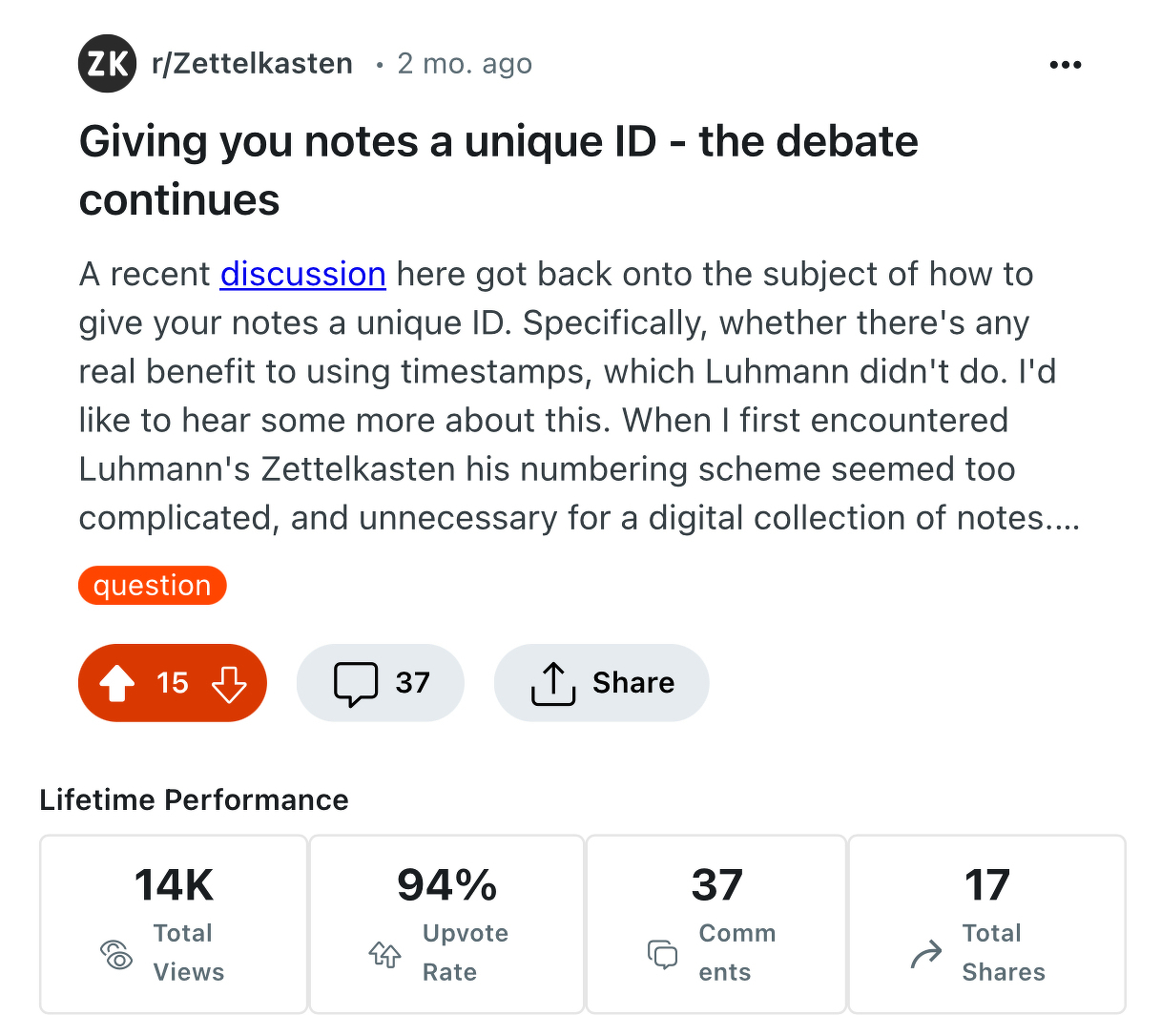
And one of my more popular posts on Reddit has had 14,000 views, which, amazingly, is more views than this tennis match had!1

This tennis match had 10,000 viewers - almost as many as my crappy post on Reddit
But that’s not the very most popular post of mine on Reddit. That would be this more recent one, with 71,000 views, a lot like this exciting football match:

These audience size images, by the way, come from Visualizing crowd sizes.
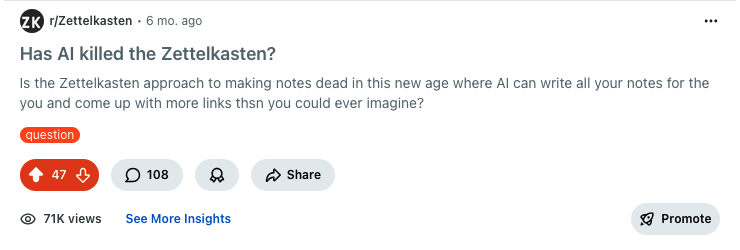
It’s ironic that my most viewed piece of writing is a single sentence long and it contains a very obvious spelling mistake.
Now to me this looks like a very big stadium. Top sports teams and pop stars would be happy with those numbers. But if you’ve posted stuff on the big platforms like Facebook, Instagram and Xitter (I’m told the X is pronounced ‘Sh’), you’re probably already laughing at these ‘tiny’ numbers. By jumping off your roof into a paddling pool with a goat in it you’ve probably enjoyed millions of views. You’ve probably gone totally viral. You’re probably a certified influencer too. But the thing is…
I don’t want to be a serf on someone else’s plantation
I can’t stand technofeudalism, in which a few billionaires own the platforms and we’re just sharecroppers in their extractive systems. Unhappily, as economist Yanis Varoufakis observes in his book, Technofeudalism, it’s the state of the world these days.

I’m never going to jump off my roof into this paddling pool, not even for views. Not even for likes.
I want a different world (I know, right?), in which data portability and interoperability are the norm, so that if I want to switch platforms I can take my ‘connections’ with me. As Professor Sinan Aral, author of Hype Machine, has imagined, “consumers would own their identities and could freely switch from one network to another.” This wouldn’t just be good for me, it would be good for the whole ecosystem, since it would give the neo-feudal platform overlords an incentive to provide a better service than that of their competitors. The Three-legged Stool is just one vision of how this could work in practice.
Meanwhile, I support services that already support interoperability. My blog is hosted by Micro.blog, which encourages me to syndicate it to other places, including Mastodon and BlueSky, which also support (some) interoperability. I’m anticipating the arrival of the Pluriverse by building it, one blog post at a time.
On the other hand, there’s a certain logic to performing where the audience is. When I was a kid I used to practice my music in public by busking. And I always busked where the crowds were, not down an empty back alley where no one was listening. My parents disapproved, until I told them how much I was earning.
If you believe your work is worth reading, then you probably also believe it’s worth getting it read by more than one person.
It’s a bit of a contradiction. Even progressive organisations like New Public, which exist ‘to reimagine social media’ nevertheless use extractive venture-capital platforms like Substack, which allegedly profits from hosting Nazis. This seems a far cry from New Public’s mission of ‘building digital public spaces that connect people, embrace pluralism, and build community’.
So these large systems that promise to promote your kind, helpful informative posts, also promote hate-speech and genocide.
But what’s the alternative? Shout into the void?
Actually, Molly White, with more than 20,000 subscribers, wasn’t happy with Substack, and she decided she didn’t want any platform dependence at all, so she rolled her own, and gave detailed instructions for anyone who might want to do the same.
Unfortunately, this isn’t simple. It’s not terribly difficult, but the bar is just high enough that it’s obvious that most people won’t bother. I mean, everyone has principles, don’t they, until the moment they see the phrase, “MySQL wasn’t configured properly”?
I’m not going to help out the haters, but I wouldn’t mind getting a few views, but also I’m not a tech wizard.
It’s a dilemma.
So where online are the people who might find my writing worthwhile? I might have some good reasons to prefer my blog over social media, but that doesn’t mean my audience does. Let’s say I’m writing a post about getting more readers. If I want to help people with this post, I need to think a bit about who it’s for and where these people usually go to get their information.
On reflection, it seems the obscure niche subjects I like writing about are well-suited to online ‘small rooms’ like subreddits, forums and discord groups, rather than ‘big rooms’ like Facebook and TikTok, where ‘context collapse’ is the norm.2
That’s because I’m not posting memes and ‘hot takes’. No goats were surprised by amateur divers in the making of this article. I’m trying to provide thoughtful, eccentric observations for thoughtful (not at all eccentric) readers, so context is everything. This means my interim solution is to post first on my blog, then syndicate where I can, then cross post to small rooms, manually when necessary. It’s a work in progress, but I do seem to be making a little progress.
My book, Shu Ha Ri: The Japanese Way of Learning, for Artists and Fighters is available right now and it’s selling fine, even though it’s a niche subject and I’m a marketing team of one.
A second reason I’m keen on my own website is that it’s a way of keeping a record of the canonical version of my online writing. The big platforms can just disappear overnight, taking everything with them as they go. Disappearance is also part of business as usual for social media. For example, Pew Research found that in 2023, 1-in-5 (20%) English language tweets had become inaccessible just three months after posting on Twitter (now X). I’d prefer to have some control over the longevity of my work. That’s why syndication is a good plan. Unfortunately, many of the big platforms don’t support it at all. The only way to syndicate is by hand, by copying and pasting. It’s feasible (I do this occasionally with Reddit), but not very efficient.
This matters because the way we organise our online lives bleeds into the way we organise the rest of our social interactions. If it’s just assumed without question that the online space is a fiefdom, then democracy everywhere is undermined.
For wise words on this subject, read Governable Spaces, by Nathan Schneider.
OK, so I know what I’m doing here (at least in one sense of that phrase), but what about what you should do? One piece of advice I do have is to notice how many people actually are reading, listening to or watching your stuff. Really notice. It might be a room-full, or a stadium-full. Every one of your readers, listeners or viewers has spent precious time and effort to engage with your thoughts, and whether or not it pays your bills, that’s amazing and worth pausing a moment to appreciate.
So here’s the point where we pause for a moment to appreciate the wonder that anyone at all is noticing our stuff.
Wow.
But unfortunately that’s all the advice I can give right now. Yes, I’d like to think niche blogs and Small Rooms still win, but that surely depends on how you define ‘winning’. I’m probably doing it all wrong. AI is rapidly transforming the whole landscape of discoverability. Organic search is less and less viable when AI summaries are everywhere. Perhaps, as some are prophesying, the humble hyperlink is dead.
So rather than tell you how to reach your readers (as if!), I have a question for you: how do you reach your readers already, right now, and how do you expect to in a near future dominated by lots of AI hype and quite a bit of AI reality?
What’s changing for you? Are you pumping up the paddling pool right now in preparation for a pivot to YouTube and massive fame? Would you still write if you had a single reader? And do you appreciate the readers you do have?
Oh, it turns out I have quite a few questions.
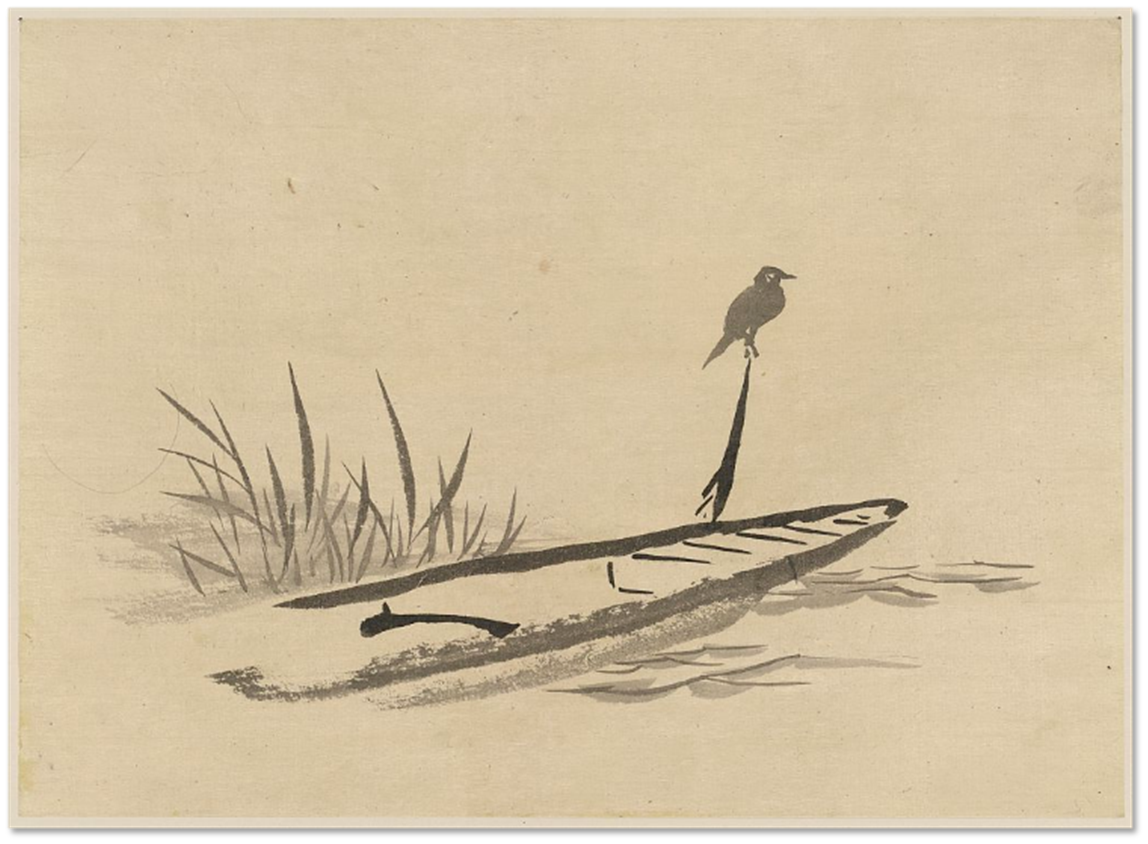
For still more questions and precious few answers, subscribe to the weekly Writing Slowly email digest.
There's a fundamental flaw in how we learn about expertise
Learn Spanish in eight days? Learn to ski in a weekend? Finish a novel in a month? Design a book in three and a half hours? (OK, that last one was me - long story).
Everyone’s looking for shortcuts, but the way we approach learning fundamentally shapes how deeply we can master a skill.
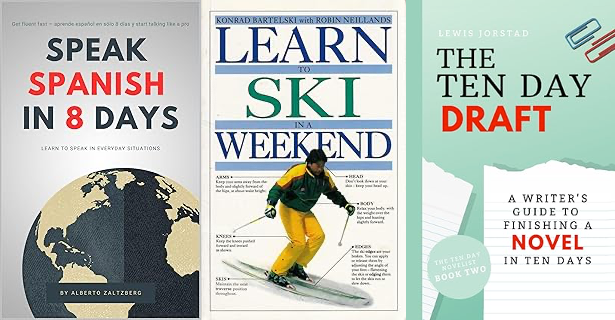
In the West, we’ve mostly embraced a linear progression; we’re all supposed to move methodically from theoretical understanding to practical application. First you learn in school and college, and only later do they let you loose in the real world. This approach has served us well in academic institutions and technical training programs.
But there exists an alternative philosophy that challenges this conventional wisdom: I’m referring to the Japanese concept of Shu Ha Ri.
Western learning models are characteristically linear; they often begin with cognitive frameworks before advancing to hands-on practice. Students typically start with rules, theories, and simplified components before attempting the full complexity of their chosen discipline.
In contrast, Shu Ha Ri represents a cyclical process that moves through three distinct phases: Shu (imitation), Ha (frustration), and Ri (detachment or transcendence). Rather than moving from simple to complex, this ancient framework begins with complete immersion in the master’s way.
I propose instead that while Western models serve their purpose in structured, academic environments, the Shu Ha Ri approach offers a superior framework for achieving true mastery.
This is particularly true in practical skills that demand intuitive understanding rather than merely intellectual comprehension. What’s more, Shu Ha Ri is a reminder that expertise isn’t truly linear anyway. The real experts continue to learn, and they’re always willing to accept they are still ‘beginners’ in a constantly changing world.
For any complex skill, the more you know the more you realise you don’t know.
A linear approach to learning makes sense but it’s not the only approach
It’s true that Western educatonal psychology has produced several influential models that support linear skill acquisition.
These models, and others like them, share a common thread: they assume that effective learning requires moving from simple, understood components toward complex, integrated performance.
Clearly there’s a lot of truth to this view.
But it’s not the only way of looking at things.
Shu Ha Ri is superior for mastery
These Western models excel at creating competent practitioners, but they may inadvertently limit the development of true mastery.
By prioritising theoretical understanding and simplified components, these approaches can create barriers to the deep, intuitive knowledge that characterises genuine expertise.
So what should we be doing instead?
1. Embrace the “Whole” over the “Simplified”
Western scaffolding deliberately fragments skills into digestible pieces. A violin student might spend a long time on bow hold or scales before attempting a simple melody, or a chef might practice knife cuts in isolation before approaching actual recipes. Culinary schools may dedicate days, or even weeks, solely to practicing various knife cuts (brunoise, julienne, etc.) to achieve consistency and speed before they are used in actual recipes.
This reductionist approach, though logical enough, can hinder or even prevent learners from experiencing the skill’s true essence.
The Shu Ha Ri model takes a radically different approach.
In the Shu stage, students engage immediately with the complete, unsimplified form. A student of the Japanese tea ceremony doesn’t begin with simplified movements or theoretical principles; they observe and attempt to replicate the real ritual from their very first lesson. The ritual is scaled: the student will start with the most basic, fundamental, and shortest temae (like hira-denae or a simplified usucha preparation). The master will hold back more complex tools and procedures, and will reserve advanced philosophical lessons for later in the training. While the ‘complete ritual’ is the simplest version the master has to offer, nevertheless the experience is holistic from day one, even if the content is strategically simplified.
This immersion in the “whole” allows learners to absorb subtle relationships between components that might be lost in a fragmented approach.
2. Prefer Imitation to Cognition
Western educational models often place considerable emphasis on cognitive understanding before physical practice.
Shu Ha Ri fundamentally inverts this priority. The Shu stage prioritises imitation and embodied practice while deliberately minimising cognitive load.
Students are encouraged to copy their master’s movements, timing, and approach without initially concerning themselves with underlying principles. This allows for “embodied cognition” to develop naturally through physical practice rather than intellectual analysis.
This difference becomes particularly apparent in disciplines that require split-second decision-making or subtle physical adjustments, as in martial arts.
But it also applies in contemplative skills such as shodo (calligraphy), ikebana (flower arranging) or, as mentioned already, the Tea Ceremony.
An artist learning through traditional Western methods might spend considerable time studying color theory and linear perspective before picking up a brush. The Shu Ha Ri approach would complement this with extensive observation and assisted practice, to allow the trainee to develop a practical understanding of line weight, shadow behavior, and subtle material texture that cannot be fully captured in textbooks.
3. Recognise Cyclical Refinement, not Finite Progression
Western models typically imply completion.
Eventually you graduate, which supposedly means you’ve reached a final “autonomous” stage where learning essentially concludes. Off you go!
The Shu Ha Ri model presents a fundamentally different philosophy. Rather than linear progression toward completion, it describes a cyclical journey of continuous refinement.
After achieving mastery, practitioners commonly return to foundational practices (Shu) with deeper understanding, uncovering subtleties previously invisible to them.
A master calligrapher might return to basic brush strokes after decades of practice, finding new depths in movements they’ve performed thousands of times.
This cyclical nature suggests that true mastery isn’t really a destination but rather an ongoing process of deepening understanding.
Sorry: it takes more than a weekend
Western learning models possess considerable strengths, particularly in academic settings where clear progression markers are essential.
They prove invaluable for complex technical skills where safety and precision demand systematic understanding. Medical training, engineering education, and scientific research obviously all benefit from structured, theoretical foundations.
That said, when our goal extends beyond competency to genuine mastery, particularly in practical skills that require intuitive understanding or creative expression, the Shu Ha Ri model, I believe, offers a more complete framework.
The traditional Japanese approach recognises that true mastery involves more than accumulated knowledge or perfected technique. It encompasses a quality of understanding that emerges through sustained practice, through cyclical refinement, and through a deep immersion in complete forms rather than in fragmented components.
True, linear models can efficiently create capable practitioners. But the cyclical, holistic, and imitation-based philosophy of Shu Ha Ri nurtures the lifelong pursuit of true mastery.
We’re obsessed these days with speed and with rapid skill acquisition: Speak Spanish in a weekend! Learn to ski in ten days! Finish your novel in just eight!
Good luck with that.
Meanwhile, the ancient wisdom of Shu Ha Ri reminds us that the deepest forms of human expertise can’t be rushed or simplified. Instead, they must be lived, embodied, and continually refined, through patient, cyclical practice.
In a future article I’ll offer some practical takeaways for your own learning journey. Meanwhile, you might like to check out my book, Shu Ha Ri: The Japanese Way of Learning, for Artists and Fighters, which is available right now.

References
Image credit: Photo by Nathalie SPEHNER on Unsplash